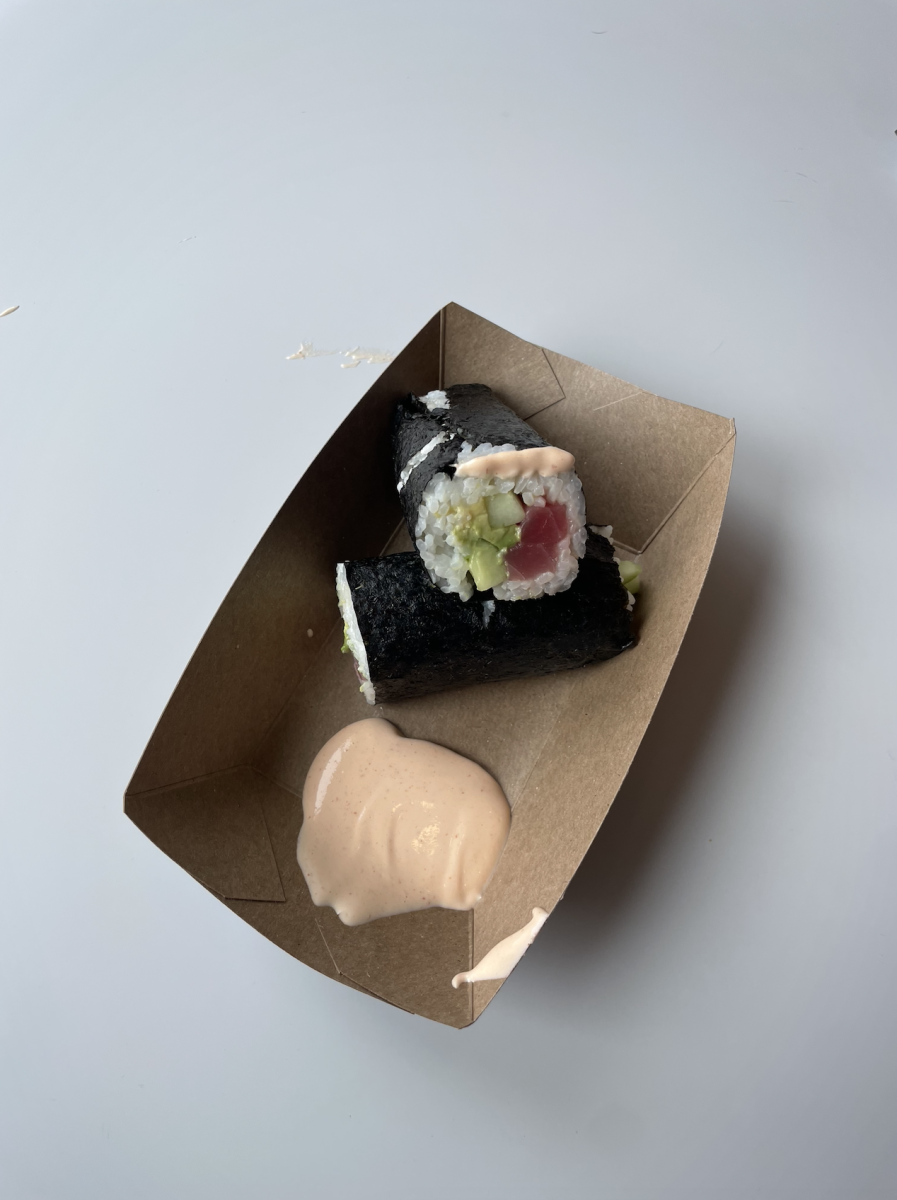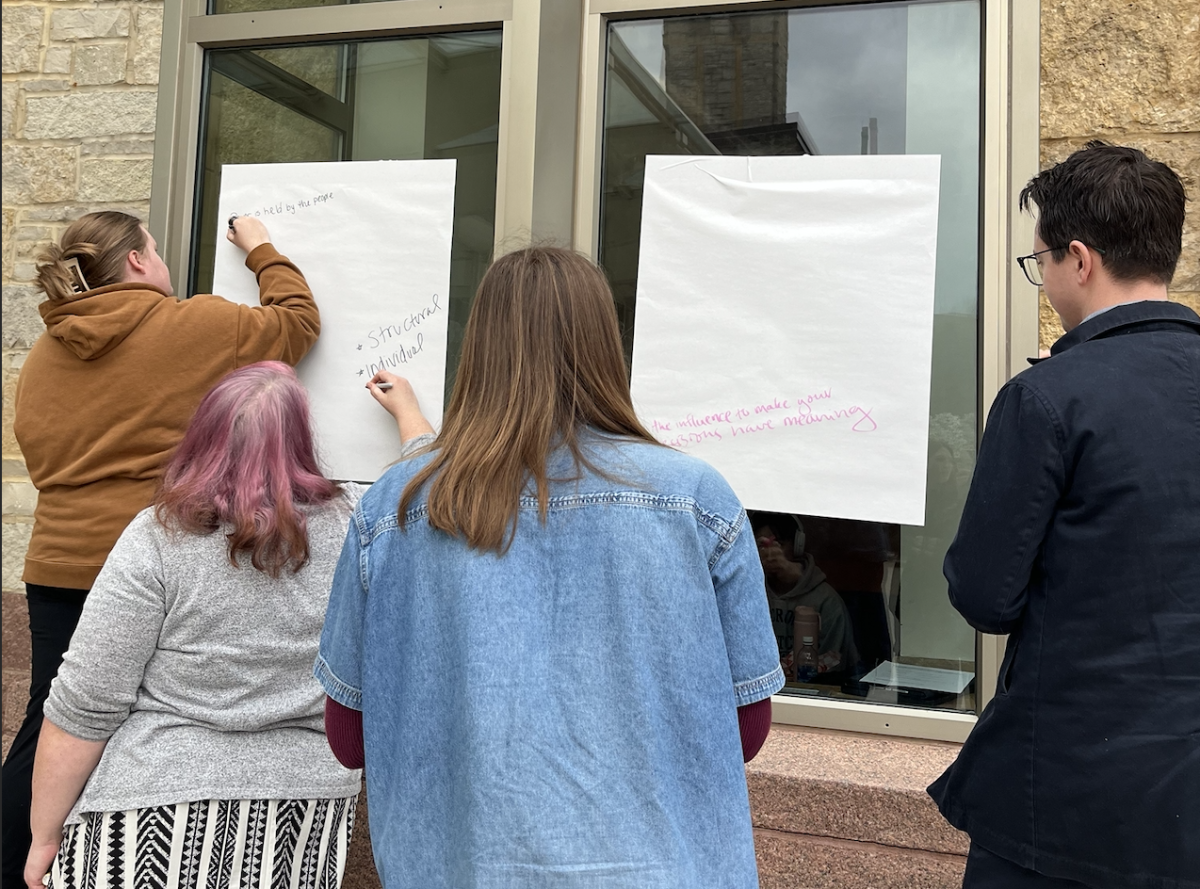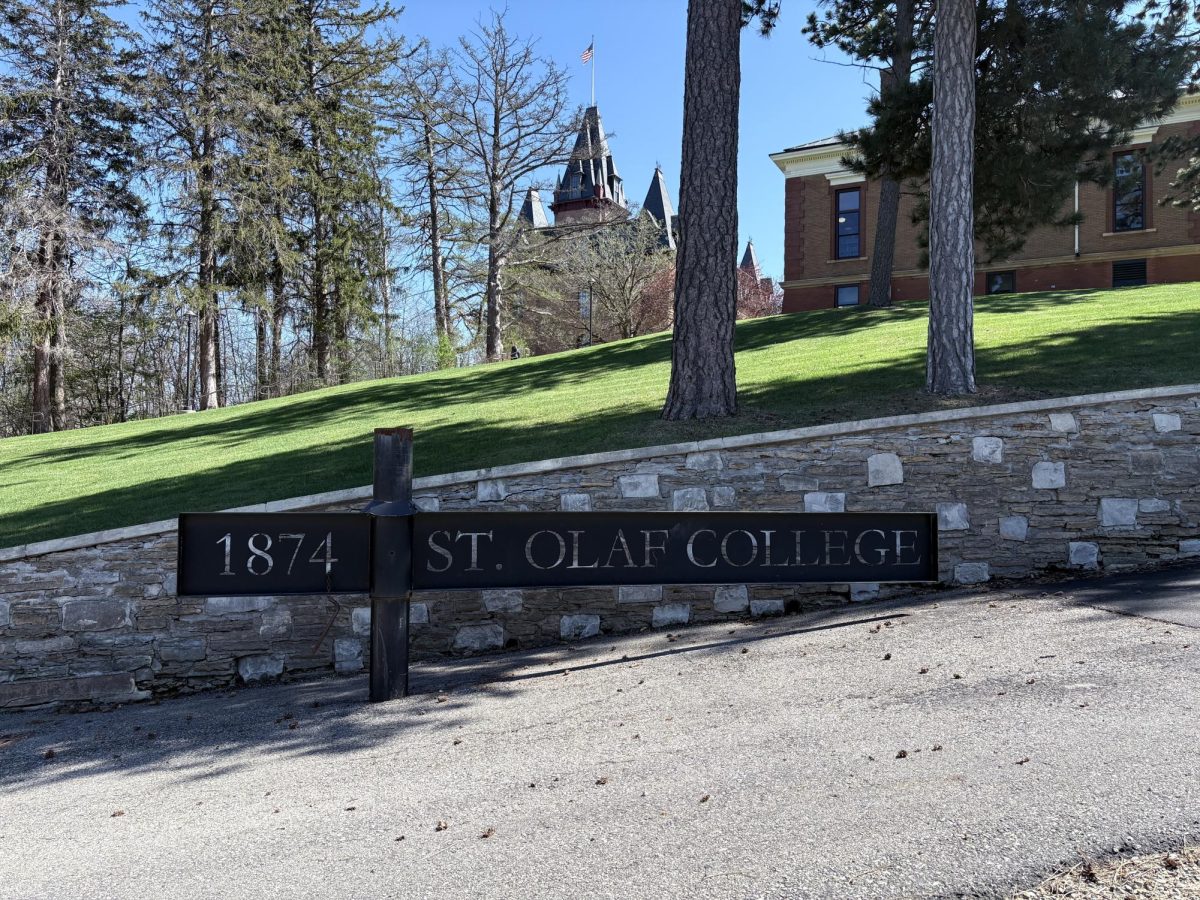
William “Bill” Green ’77, former director of multicultural affairs and community outreach (MACO) and assistant dean of community life and diversity at St. Olaf, passed away on April 13. Green’s life and legacy is lauded by the many students for whom he instilled a sense of belonging at St. Olaf and fostered their passion for justice.
Green grew up in Memphis, Tenn. and Los Angeles before moving to Northfield as a student. During his time at St. Olaf, Green studied sociology and political science and was a member of the football and track teams.
A few years after graduating, Green returned to St. Olaf as a member of staff. Those who knew him describe him as an athletic, stylish and talented man. In the 25 years that he worked at the College, first in Admissions before becoming the director of MACO, Green tirelessly advocated for racial justice and was a formative part of countless students’ experience at St. Olaf.
For Michael Pristash ’00, Green was “a friend, mentor, surrogate Dad and campus giant.” In a heartfelt post in the facebook group for alumnus a part of Oles for Racial Awareness, Change and Equity(ORACE) , Pristash recounted his experience of meeting Green as a first-year student and the lasting impact that Green had on his time at the College.
“Bill was St. Olaf for so many students — and the reason why so many students not only chose St. Olaf, but the reason they stayed,” Pristash wrote in a message to the Messenger. “[Bill was] a beacon for all students who felt displaced, invisible or alienated by the predominant (sometimes suffocating) white monolith of Olaf.”
Laura Guzman-Corrales ’10 also remembers Green as a key figure during her time at St. Olaf. He was someone who not only helped her find a sense of belonging at the college, but also shaped her outlook on life and advocacy.
“Mr. Green provided so much stability for students, especially students of color, who didn’t always feel very welcome at St. Olaf or didn’t feel like they found their place easily,” Guzman-Corrales said. “He really created a space for those students, both physical and emotional. He was a mentor in a lot of ways.”
Guzman-Corrales remembers the depth of kindness and support Green offered to her and to others.
“There was just a grace to him. I don’t know how else to describe it,” Guzman-Corrales said. “There’s not a lot of people I’ve met in my life that are as dignified in how they interact with others, and that makes you feel really special. When someone is holding themselves high that way, it transfers to you and makes you want to hold yourself high as well.”
As Green led by example, he also worked with students to actively advocate for change on a campus that was not always eager to embrace it.
During her time at St. Olaf, Guzman-Corrales participated in student organizations including PRESENTE and the Diversity Celebrations Committee. She remembers when “emotions were really high” during a bias incident at St. Olaf and she and other students went to Green’s office and talked with him for a long time. “Mr. Green was calming and steadying,” Guzman-Corrales recalls. “He had a way of centering everyone. What can we do about this situation? How could we translate our frustration into action?”
After Green moved on from his position at St. Olaf, he continued to advocate for equity and racial justice in education through recruitment and as director of multicultural and international affairs at North Central University in Minneapolis.
In an email sent to St. Olaf students on April 16, Interim Vice President for Equity and Inclusion and Director of the Taylor Center for Equity and Inclusion Dr. María Pabón Gautier commemorated the life and legacy of Green.
“Many of us who interacted with him knew the impact his work made on our College. I know that the work I do, I do because I stand on the shoulders of people like Bill Green. He will be remembered and missed,” Pabón Gautier said.
Guzman-Corrales hopes that Green’s legacy will be carried forward through action.
“What I hope the institution remembers about him is that it is possible to create those environments for students and it’s worth investing time and resources into that, and finding the Mr. Greens in the world. He created something really special and I hope that legacy is carried on,” Guzman-Corrales said.


